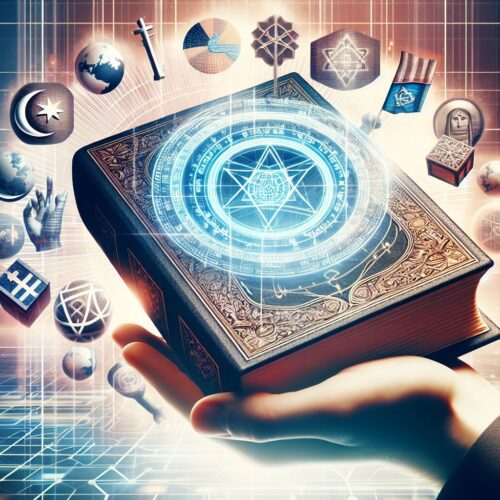In an era where technology has become an intrinsic part of our daily lives, it is crucial to reflect upon the ethical implications arising from its rapid advancements. This article delves into the complex relationship between monotheistic beliefs and politics, shedding light on untapped viewpoints regarding the intertwining of religion and technological progress.
Unveiling the Intersection
The intersection of monotheism and politics has always been a fertile ground for contemplation and debate. Monotheistic beliefs, rooted in the idea of a single, supreme deity, often wield significant influence over political decisions and policies. However, with the advent of technology, a new dimension of this intersection arises. As societies grapple with developments like artificial intelligence, genetic engineering, and surveillance systems, questions of ethics become increasingly entwined with religious values.
Technology as an Ethical Litmus Test
One can argue that advancements in technology serve as an ethical litmus test for societies heavily influenced by monotheistic beliefs. As we create intelligent machines capable of decision-making, do we imbue them with moral frameworks reflective of religious doctrines? Or should these systems prioritize impartiality and objectivity? Furthermore, the ethical implications of tinkering with the building blocks of life through genetic engineering open up debates on divine providence and the boundaries of human intervention.
Religious Ethics as a Compass
In an age where technological breakthroughs can shape governments, economies, and human lives, examining how monotheistic beliefs inform political decisions becomes imperative. Monotheistic religions often bestow ethical frameworks upon their adherents, guiding their understanding of right and wrong. By bringing these religious ethics to the forefront of technological advancements, societies can ensure that progress aligns with deeply cherished values such as compassion, justice, and respect for human dignity.
However, these ethical frameworks can also challenge the pace and direction of technological progress. Some groups may interpret religious doctrines in ways that strictly oppose certain technological advancements, leading to a clash between religious dogma and scientific pursuits. Striking a balance between religious ethics and technology, therefore, hinges upon thoughtful reflection and open dialogue between diverse perspectives.
Navigating Technological Frontier
As we navigate the frontiers of technology, we must avoid both blind faith and unwarranted skepticism. Instead, critical examination of how religious and political values intersect with technological advancements can foster a more inclusive and equitable future. Acknowledging the plurality of beliefs and ethical systems within monotheistic traditions offers an opportunity to engage in meaningful discussions, enabling us to collectively shape the ethical landscape of technology.
Additionally, this exploration raises fundamental questions about power structures and control. Who wields the reins of technological progress? How can religious considerations influence these power dynamics? By weaving religious narratives into the fabric of technological development, we challenge the dominant discourse and facilitate a more holistic approach to innovation.
Conclusion
In conclusion, the ethical implications of technology in the context of monotheistic beliefs and politics are profound. As we embrace technological advancements, we must have candid conversations about the values and ethical frameworks that guide our decisions. By illuminating the intersection of religious beliefs and political landscapes, we can collectively navigate the ethical conundrums posed by technology, ensuring that progress aligns with core human values. By embracing diverse perspectives and fostering open dialogue, we can forge a future where technology serves as a vehicle for societal advancement rather than a source of moral compromise.
